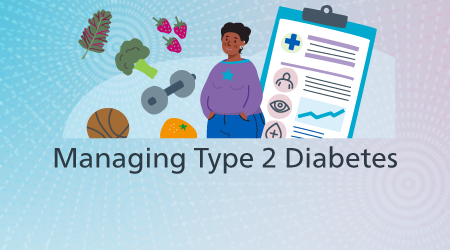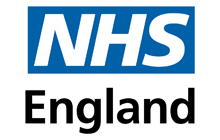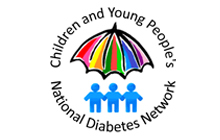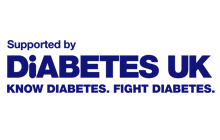Available on the Learning Hub
This programme is available on the NHS Learning Hub. We recommend you read the information on this webpage to find out more about the programme before you access the learning (https://learninghub.nhs.uk/catalogue/Managing-Type-2-Diabetes-in-Children)
More information about the Learning Hub and the migration of elfh programmes can be found here.
About the Managing Type 2 Diabetes in Children and Young People Programme
This elearning aims to enhance care for children and young people (CYP) with type 2 diabetes, which should help improve their longer-term health. It will help increase healthcare professionals’ awareness of how best to care for CYP with type 2 diabetes and help them to keep up to date with the latest treatments and guidance.
-
Diagnosis and initial management
This session outlines a clear learning path for members of the paediatric diabetes multidisciplinary team on the diagnosis and management of type 2 diabetes in CYP.
By the end of this session, you should be able to:
- recognise signs and symptoms which may indicate type 2 diabetes
- identify the risk factors and high-risk groups
- describe the investigations required to confirm a diagnosis
- explain the referral procedure and initial care for a child or young person who presents with suspected type 2 diabetes
The session will take around 30 minutes to complete and includes additional learning resources for those looking to further increase their knowledge.
To access the elearning in the Learning Hub directly, visit the link below.
Diagnosis and initial management:
https://learninghub.nhs.uk/Resource/49767/Item
Please scroll to the bottom of this page for additional access routes to the elearning content.
-
Glycaemic targets
This session provides an overview of the glycaemic targets for CYP with type 2 diabetes and self-management education that should be provided.
By the end of this session, you should be able to:
- describe how frequently HbA1c should be measured and appropriate targets
- recognise the NICE guidance on self-blood glucose monitoring, including preprandial and postprandial blood glucose targets
- explain when intermittent or continuous glucose monitoring is recommended in children and young people with type 2 diabetes and the potential benefits
- identify the importance of providing self-management education at diagnosis and annually, and what this should include
- discuss preconception care considerations
The session will take around 30 minutes to complete and includes additional learning resources for those looking to further increase their knowledge.
To access the elearning in the Learning Hub directly, visit the link below.
Glycaemic targets:
https://learninghub.nhs.uk/Resource/49769/Item
Please scroll to the bottom of this page for additional access routes to the elearning content.
-
General lifestyle, weight management and psychological interventions
This session provides an overview of general lifestyle, weight management and psychological approaches and interventions for children and young people with Type 2 diabetes.
By the end of this session, you should be able to:
- identify the modifiable lifestyle factors that impact on type 2 diabetes while remaining sensitive to the culture, beliefs and values of the young person and their family
- describe the role of dietary assessment and dietary approaches to achieve weight loss, including when bariatric surgery may be appropriate
- explain the importance of psychological support when addressing lifestyle modification in type 2 diabetes and to be able to identify tools to help guide conversations about behaviour change
- understand the importance of regular screening for depression and eating disorders and onward referral
The session will take around 30 minutes to complete and includes additional learning resources for those looking to further increase their knowledge.
To access the elearning in the Learning Hub directly, visit the link below.
General lifestyle, weight management and psychological interventions:
https://learninghub.nhs.uk/Resource/49826/Item
Please scroll to the bottom of this page for additional access routes to the elearning content.
-
Pharmaceutical interventions
This session will cover the pharmaceutical interventions available for managing type 2 diabetes in CYP, including the indication, initiation and ongoing management of these medications.
By the end of this session, you should be able to:
- specify the available pharmaceutical interventions for treatment of type 2 diabetes in CYP
- explain the rational for recommended treatment pathways
- describe the initiation and ongoing management of pharmaceutical treatments, including the stepwise escalation and de-escalation of medication as required
- discuss the options for patient choice within therapeutic categories
The session will take around 30 minutes to complete and includes additional learning resources for those looking to further increase their knowledge.
To access the elearning in the Learning Hub directly, visit the link below.
Pharmaceutical interventions:
https://learninghub.nhs.uk/Resource/49828/Item
Please scroll to the bottom of this page for additional access routes to the elearning content.
-
Complications and co-morbidities
This session covers common comorbidities and complications of type 2 diabetes that may already be present at diagnosis.
By the end of this session learners should be able to:
- identify the comorbidities and complications associated with type 2 diabetes in CYP
- describe the screening processes for comorbidities and complications
- communicate the importance of regular screening to children and young person and their families
- explain the importance of managing comorbidities and complications alongside targeting good glycaemic control
- outline the care pathways for managing comorbidities and complications
The session will take around 30 minutes to complete and includes additional learning resources for those looking to further increase their knowledge.
To access the elearning in the Learning Hub directly, visit the link below.
Complications and co-morbidities:
https://learninghub.nhs.uk/Resource/49830/Item
Please scroll to the bottom of this page for additional access routes to the elearning content.
-
Young adult care 18 years and over
This session covers the key considerations for the care of young adults with type 2 diabetes. It is a resource to help healthcare professionals understand the particular risks in this age group and aid their transition to adult services.
By the end of this session learners should be able to:
- recognise the demographic characteristics of young adults with type 2 diabetes and differences in disease progression compared to older onset type 2 diabetes
- identify the key considerations for healthcare transition between paediatric and young adult services
- identify the key considerations for young adult care
- describe the treatments (medication and lifestyle interventions) suitable for 18 years +
- discuss the importance of contraception, planned pregnancy and preconception care for young women and the key messages to deliver
The session will take around 30 minutes to complete and includes additional learning resources for those looking to further increase their knowledge.
To access the elearning in the Learning Hub directly, visit the link below.
Young adult care 18 years and over:
https://learninghub.nhs.uk/Resource/49832/Item
Please scroll to the bottom of this page for additional access routes to the elearning content.
More information
The number of CYP being diagnosed with type 2 diabetes is increasing. Despite this type 2 diabetes is considered a relatively rare condition by diabetes paediatricians. In 2019/20 over half (58.7%) of paediatric diabetes units managed fewer than six children with type 2 diabetes and paediatric teams are often not familiar with the more progressive nature of early onset type 2 diabetes and the need for early intervention and aggressive treatment.
This programme will enable staff to access the training at a time convenient to them and allow a range of HCPs to refresh and further increase their skills in managing type 2 diabetes.
On completion of the programme or session(s) please can you complete the programme evaluation survey – https://app.onlinesurveys.jisc.ac.uk/s/healtheducationyh/nhse-tel-managing-type2-diabetes-in-children
We are very grateful for all feedback received from our learners and users as this helps us to improve the services we deliver.
Primary and secondary audiences
Primary audience: Those working in specialist children and young adult diabetes services and include doctors/ consultants/ nurses/ dietitians/ psychology staff/ youth workers.
Secondary audiences: Staff prescribing diabetes medication and staff working in local GP practices that may see CYP with type 2 diabetes.
Acknowledgements
| Diagnosis and initial management of Type 2 diabetes |
|
| Management 1 – Glycaemic targets, glucose monitoring and self-management education |
|
| Management 2 – General lifestyle, weight management and psychological interventions |
|
| Management 3 – Pharmaceutical interventions |
|
| Complications and co-morbidities |
|
| Type 2 diabetes: Young Adult Care (18yrs +) |
|
Meet the team

Dr Fulya Mehta
National clinical lead for children and young adults diabetes, NHS England and Consultant Paediatrician, Alder Hey Children’s Hospital
Dr Dita Aswani
Consultant Paediatrician specialising in Diabetes and Weight Management, Sheffield Children’s NHS Foundation Trust
Dr Pooja Sachdev
Consultant in Paediatric Diabetes and Endocrinology, Nottingham Children's Hospital
Shannon Ball
Person living with Type 2 diabetes
Verity Hawkes
Project Manager, NHS England
Amy Newman
Project Manager, NHS England
Karole Smith
Programme Manager - Technology Enhanced Learning, NHS England
Dave Beardmore
Senior Project Manager - Technology Enhanced Learning, NHS England
Claire Beattie
Lead Learning Designer - Technology Enhanced Learning, NHS England
Roger Ellison
Learning Designer - Technology Enhanced Learning, NHS England
Rachel Grant
Learning Designer - Technology Enhanced Learning, NHS England
Catherine Moran
Graphic Designer - Technology Enhanced Learning, NHS England
Louise Garrahan
Senior Marketing and Communications Officer - Technology Enhanced Learning, NHS England
How to access
To access this elfh programme, you will require a Learning Hub account. If you do not have one, then you can register by selecting the Register button below. Note that if you hold a full elfh account, you can sign into the Learning Hub using your existing login credentials.
To view the Managing Type 2 Diabetes in Children and Young People programme, select the View button below. If you already have a Learning Hub account, you will also be able to login and access the resources within the programme .
NHS healthcare staff in England – ESR
The Managing Type 2 Diabetes in Children and Young People programme is also available to NHS healthcare staff via the Electronic Staff Record (ESR). Accessing this e-learning via ESR means that your completions will transfer with you throughout your NHS career.
Further details are available here.
Not an NHS organisation?
If you are not an NHS health or care organisation and therefore do not qualify for free access to the Learning Hub, you may be able to access the service if you have an existing OpenAthens account. Please go to Learning Hub and sign in with your existing credentials.
If you do not have an existing OpenAthens account, please contact elfh directly to check whether you may be eligible for access.
Registering large numbers of users
If you are a HR, IT or Practice Manager and would like to register and enrol large numbers of staff within your organisation for access onto the Managing Type 2 Diabetes in Children and Young People programme, please contact elfh directly.
Organisations wishing to use their own LMS
For HR departments wanting to know more about gaining access to courses using an existing Learning Management System please contact elfh directly to express interest.
More information
Please select the following link for more information on how to use the Learning Hub
Select here for more information on the authorisations process to run reports on the learning activity of staff.
Select the following link for more information about CPD points.






